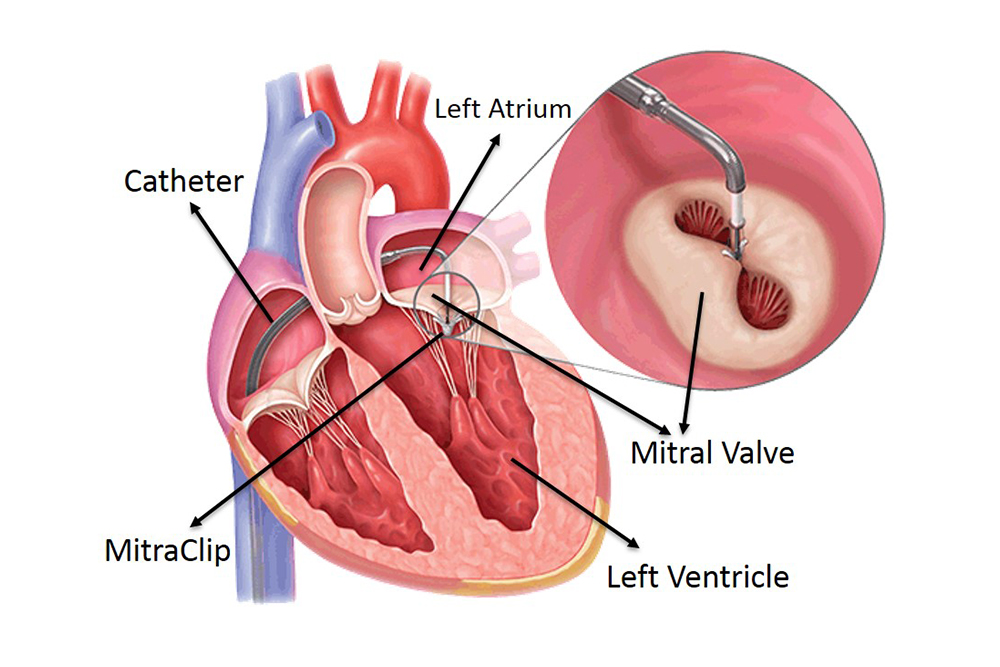Total Correction with Single Valve Repair or Replacement
India
-
Our Price USD 6030
-
Hospital Price USD 6700
-
You Save : USD 670
Booking Amount: USD 603. Pay Remaining 90% at the hospital.
Book NowAdditional Credit
Among the important extras we offer as part of the Additional Credit are the following:
-
Site Tourism For The Patient & Attendant
-
Airport Pick & Drop Service
-
Ambulance service at airport
-
Priority appointments with The Doctor
-
Cancel Easily Anytime with Full Refund
-
Room Upgradation
-
Free Online Doctor Consultation Valued at USD 20
-
Free hotel Stay for 5 to 7 days Accordingly
-
Welcome Kit at Arrival
-
Interpreter
-
Medical Visa Assistance
What is Included?
- Doctor consultation charges
- Lab tests and diagnostic charges
- Room charges inside hospital during the procedure
- Surgeon Fee
- Cost of implant
- Nursing charges
- Hospital surgery suite charges
- Anesthesia charges
- Routine medicines and routine consumables (bandages, dressings etc.)
- Food and Beverages inside hospital stay for patient and one attendant.
What is not Included?
- Extra Radiology Investigations
- Healthcare Professionals Charges of other consultations.
- Other Requested Services such as Laundry etc.
- Additional Pharmaceutical Products and Medicines After Discharge from Hospital.
- Management of Conditions Unrelated to Procedures or Pre-Existing.
- The cost of any additional implants will be in addition to the package cost.
Package Description
Total Correction with Single Valve Repair or Replacement
Aortic valve repair and replacement are treatments used to address abnormalities of the aortic valve, which is one of four valves that regulate blood flow through the heart. The aortic valve keeps blood flowing through the heart in the right direction. It connects the main pumping chamber of the heart (left ventricle) to the major artery that carries oxygen-rich blood throughout your body (aorta). When the aortic valve isn't functioning correctly, it can obstruct blood flow and make the heart work harder to pump blood to the rest of the body.
Aortic valve repair or replacement can help treat aortic valve disease by restoring normal blood flow, reducing symptoms, extending life, and preserving heart muscle function.
Treatment for aortic valve disease is determined by the severity of your illness, whether you have signs and symptoms, and whether your condition is worsening. Aortic valve regurgitation, stenosis, and congenital heart disease are all examples of aortic valve disease that may necessitate aortic valve repair or replacement.
The severity of your aortic valve disease, as well as the severity of your aortic valve disease, all factor into the choice to repair or replace a damaged aortic valve. Your age, as well as your overall health, Whether you require further heart surgery, such as a heart bypass to treat coronary artery disease, in addition to aortic valve disease, so that both diseases may be addressed at the same time.
In general, heart valve repair is preferred over valve replacement because it lowers the risk of infection, retains valve strength and function, and eliminates the need for lifelong blood-thinning drugs, which may be required with some forms of valve replacement. Depending on the severity of their illness, patients with a hole in the valve's closing flaps (perforated valve leaflet) may be candidates for aortic valve repair rather than replacement.
Disease Overview
Aortic valve disease is a form of heart valve disease that affects the aortic valve. The valve between the lower left heart chamber (left ventricle) and the major artery to the body (aorta) doesn't operate correctly in aortic valve disease. The aortic valve keeps blood flowing through the heart in the right direction. Blood flow to the rest of the heart and body can be affected by a broken or sick aortic valve.
Aortic valve disease includes:
Aortic valve stenosis: It occurs when the aortic valve's flaps (cusps) grow thick and inflexible, or they fuse together. The valve opening narrows as a result of these issues, reducing or blocking blood flow from the heart to the rest of the body.
Aortic valve regurgitation: It happens when the aortic valve fails to seal correctly, allowing blood to flow backward into the left lower chamber of the heart (ventricle).
Aortic valve disease can be present from birth (congenital heart disease) or develop later in life as a result of other health problems.
Signs and Symptoms
Some persons with aortic valve dysfunction may go years without seeing symptoms. The following are some of the signs and symptoms of aortic valve disease:
- Heart whooshing or swishing sound (heart murmur)
- Tightness or discomfort in the chest
- Irregular heartbeat - Dizziness - Fainting - Fatigue after exertion or reduced capacity to remain active
- Shortness of breath, especially while doing intense activities or resting down - Not eating enough (mainly in children with aortic valve stenosis)
- Unable to develop sufficient weight (mainly in children with aortic valve stenosis)
Disease Causes
A cardiac abnormality present at birth may induce aortic valve disease (congenital heart defect). Other late-life causes of aortic valve dysfunction include:
- Infections
- Age-related alterations in the heart
- Hypertension (high blood pressure)
- Coronary artery occlusion
The valve between the lower left heart chamber (left ventricle) and the body's major artery (aorta) malfunctions in aortic valve disease. The valve may have swollen and stiffened (stenosis) or may not seal correctly, allowing blood to flow backward. Valve flap dysfunction can also limit or prevent blood flow from the heart to the rest of the body.
Diagnosis
A physical exam and inquiries about your signs and symptoms, as well as your medical history, are commonly used to diagnose aortic valve disease.
When a health care practitioner listens to your heart using a stethoscope, they may detect a whooshing or swishing sound (heart murmur). If this is the case, you may be sent to a cardiologist (cardiologist).
Aortic valve disease can be diagnosed using a variety of tests, including:
Echocardiogram: An echocardiography is a type of ultrasonography of the heart. Sound waves are employed to produce moving images of the heart. An echocardiography allows doctors to examine the aortic valve and aorta in greater detail. It can assist in determining the source of aortic valve disease as well as the severity of the condition.
Electrocardiogram (ECG or EKG). The electrical activity of the heart is recorded in this noninvasive examination.
Chest X-ray: It can provide information about the heart and lungs' health.
Cardiac MRI: It creates precise pictures of the heart using magnetic fields and radio waves.
Cardiac computerized tomography (CT) scan: In this, Series of X-rays are used to obtain detailed pictures of the heart and heart valves. This imaging approach may be used by doctors to determine the size of the aorta and examine the aortic valve in greater detail.
Exercise tests or stress tests: These tests often involve walking on a treadmill or riding a stationary bike while an ECG or echocardiogram is performed.
Cardiac catheterization: This procedure rarely used to diagnose aortic valve dysfunction. It can, however, be used to assess the degree of aortic valve disease. This can provide further information regarding blood flow and how effectively the heart is functioning.
Treatment
Treatment for aortic valve disease is determined by the severity (stage) of the illness, as well as whether or not the disease is producing symptoms or if the condition is worsening.
Monitoring, lifestyle modifications, drugs, surgery, and other treatments are all options for treatment. Consider getting tested and treated at a medical centre with a multidisciplinary team of heart disease experts (cardiologists) and others skilled and experienced in diagnosing and treating heart valve disease if you have aortic valve disease.
Medication: To treat symptoms of aortic valve disease or lower the risk of consequences, doctors may prescribe heart-healthy lifestyle changes and drugs. Medication may be used to:
- Lower blood pressure
- Prevent irregular heartbeats
- Get rid of excess fluid in the body to relieve stress on the heart.
Surgery: To repair or replace a damaged aortic valve, surgery or a catheter technique may be required. Even if the condition isn't severe or producing symptoms, some patients with aortic valve disease require surgery. An open-heart surgery is frequently used to repair or replace an aortic valve. The valve can sometimes be replaced with minimally invasive heart surgery, which involves fewer incisions than open-heart surgery and is done using a catheter.
Aortic valve repair often requires open-heart surgery. There may, however, be less intrusive alternatives. A catheter operation, for example, might be used to implant a stopper or device in a leaky replacement aortic valve. The surgeon may perform one or more of the following procedures at this time:
-Disconnect fused valve flaps (cusps)
- Make the valve's base more stable by adding support.
- Trim or reshape superfluous valve tissue to allow the cusps to seal completely.
- Restore a valve's holes or rips.
Aortic valve replacement: A surgeon replaces the damaged valve with a mechanical valve or a valve manufactured from cow, pig, or human heart tissue in this procedure (biological tissue valve). The aortic valve is occasionally replaced with your own lung (pulmonary) valve. Then a biological lung tissue valve is implanted in place of your pulmonary valve.
Information related to Treatment
Package Details
Days in Hospital
8 Days
Days in Hotel
*
8 Days
Room Type
Private
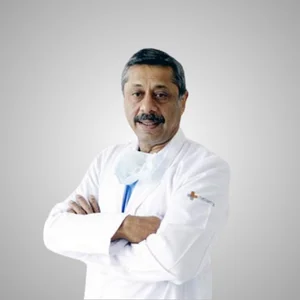
Treating Doctor
Dr. Naresh Trehan
Cardiac Surgeon- Coronary artery bypass graft (CABG) surgery, Cardiothoracic Surgeon, MIDCAB Sugery
Medanta-The Medicity, Gurgaon Gurgaon, India
43 Years of Experience
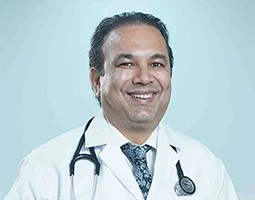
Treating Doctor
Dr. Umesh Kohli
Interventional Cardiologist- Echocardiography, Pacemaker Implantation, Coronary Angiography, Coronary Angiogram, Cardiac Ablation, Cardiac Catheterisation, ASD VSD repair, Cardioversion, Implantable Cardioverter-Defibrillators (ICDS), Peripheral Angioplasty, Non Invasive Cardiology, Chest Pain Treatment, Bypass Surgery, CT angiogram, Cardiology, Balloon Mitral Valbuloplasty
Accord Super specialty Hospital Faridabad, India
24 Years of Experience
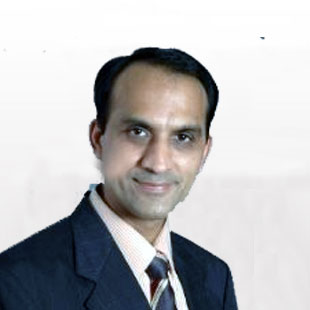
Treating Doctor
Dr. Amit Chandra
Cardiac Surgeon- Heart valve repair, Tricuspid, Mitral Valve Replacement & Repairs, Aortic Valve Replacement & Repairs
Medanta-The Medicity, Gurgaon Gurgaon, India
31 Years of Experience
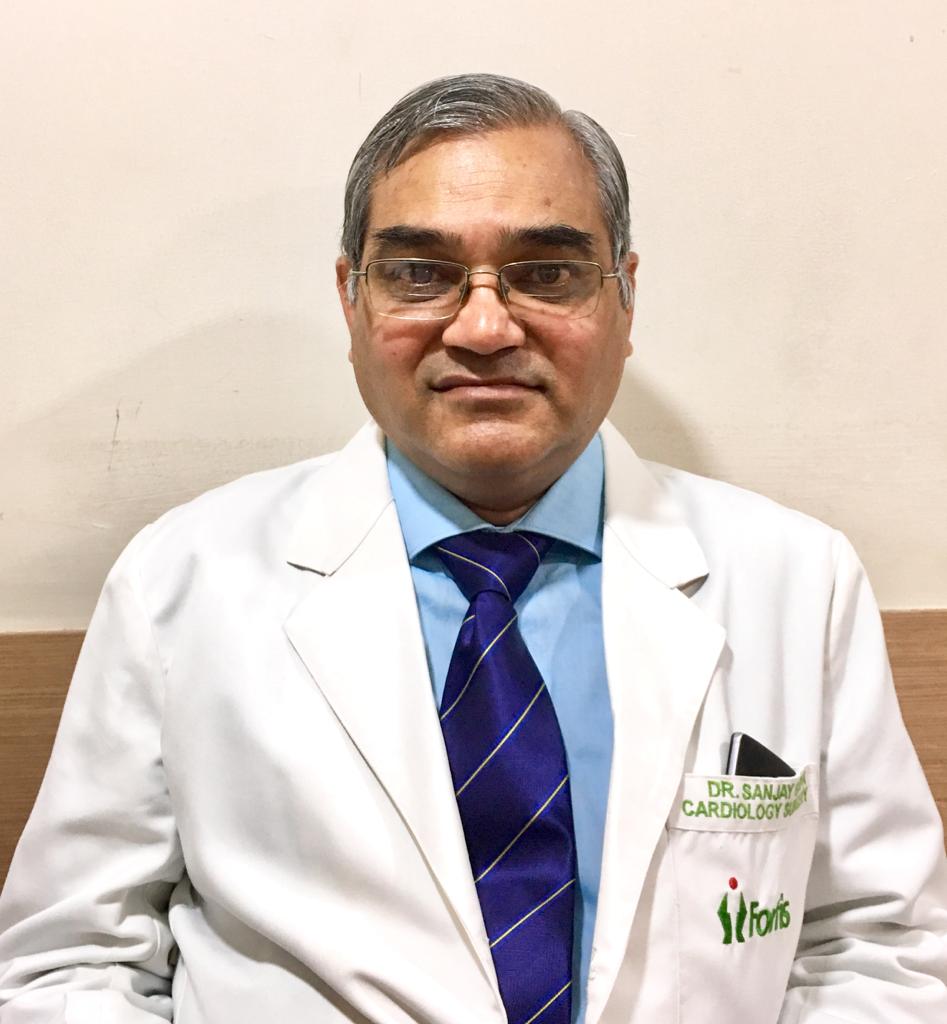
Treating Doctor
Dr Sanjay Gupta
Cardiac Surgeon- CABG, MIDCAB Sugery, Heart valve replacement, Aortic root replacement, Mitral Valve Replacement & Repairs
Fortis Flt. Lt. Rajan Dhall Hospital, Vasant Kunj, Delhi New Delhi, India
27 Years of Experience
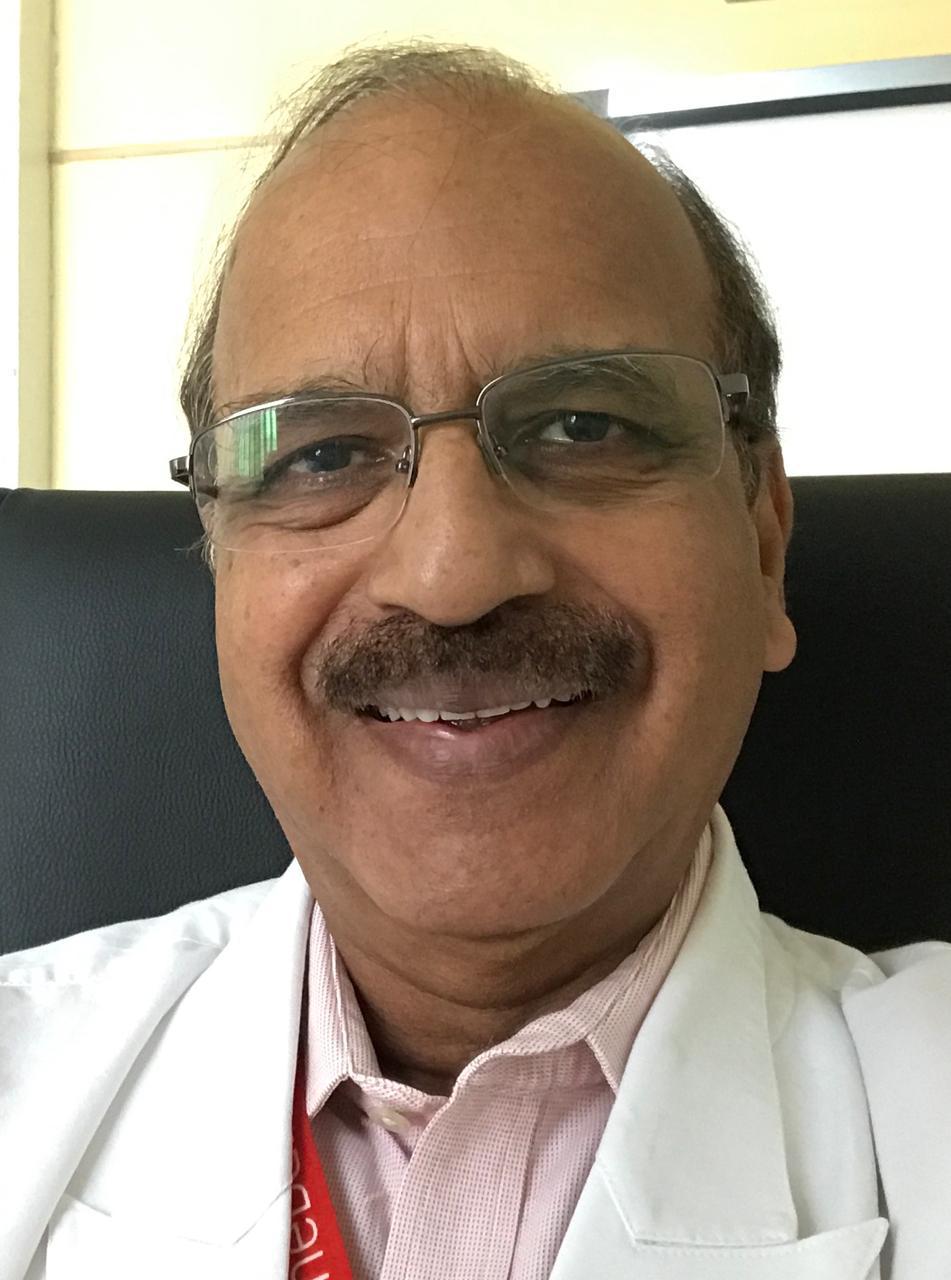
Treating Doctor
Dr. S.K. Jain
Cardiac Surgeon- Aortic surgery, Heart valve replacement, Mitral valve replacement, Aortic Valve Replacement & Repairs
Medanta-The Medicity, Gurgaon Gurgaon, India
40 Years of Experience
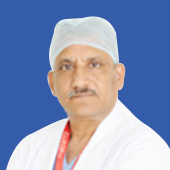
Treating Doctor
Dr. Bhuvnesh K Aggarwal
Cardiac Surgeon- Cardiovascular and Cardiothoracic Surgery
Medanta-The Medicity, Gurgaon Gurgaon, India
32 Years of Experience
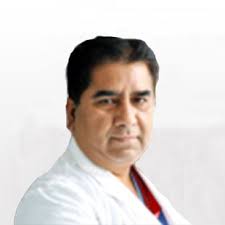
Treating Doctor
Dr. Indivar Upadhyay
Cardiac Surgeon- Aortic surgery, Heart transplant, Heart transplant, Paediatric Cardiac Surgeon, Abdominal Aortic Aneursym
Medanta-The Medicity, Gurgaon Gurgaon, India
32 Years of Experience
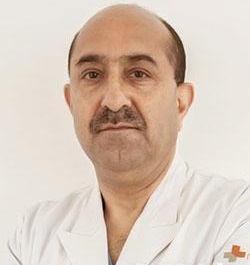
Treating Doctor
Dr. Surinder Bazaz
Cardiac Surgeon- Cardiothoracic Surgeon, Cardiothoracic Surgeon, Cardiovascular Surgery
Medanta-The Medicity, Gurgaon Gurgaon, India
42 Years of Experience
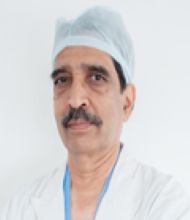
Treating Doctor
Dr. Ramesh Kumar Bapna
Cardiac Surgeon- Cardiac Thoracic and Vascular Surgery
Medanta-The Medicity, Gurgaon Gurgaon, India
41 Years of Experience
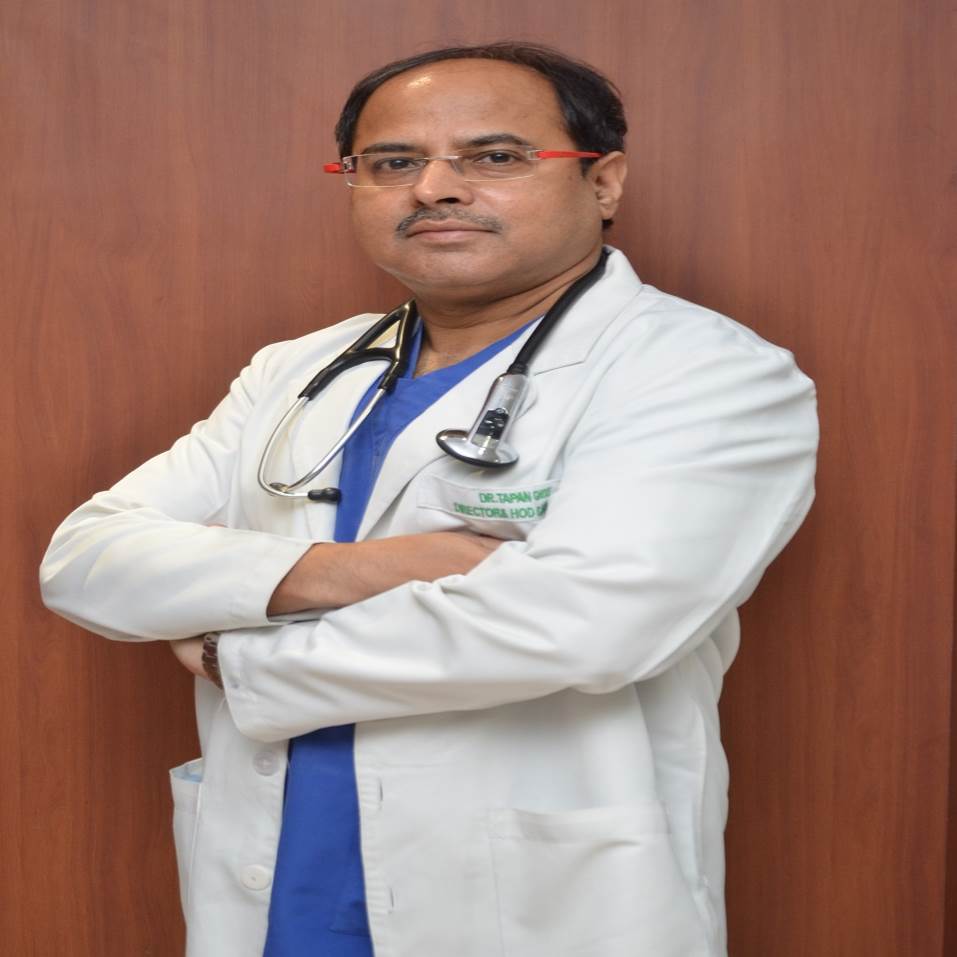
Treating Doctor
Dr Tapan Ghose
Cardiologist- Pacemaker Implantation, Angiography, Vascular Surgeon, Vascular Surgeon, Mitral valve replacement, Cardiac Ablation, Cardiac Catheterisation, Cardiac Electrophysiology, Carotid Angioplasty And Stenting, Implantable Cardioverter-Defibrillators (ICDS), Pacemaker Implantation, Bypass Surgery, Coronary Bypass Surgery, Stent Surgery, Transradial coronary intervention, Lipidology, Hip Disorders, Tre Cardioversion Procedure, Intra - Arterial Thrombolysis Procedures, Pacemaker Implantation, Cardiac Catheterisation, Carotid Angioplasty And Stenting, Pacemaker Implantation, Angiography, Cardiac Ablation, Celebral Palsy, Pacemaker Implantation, Bypass Surgery, Cardiac Catheterisation
Fortis Flt. Lt. Rajan Dhall Hospital, Vasant Kunj, Delhi New Delhi, India
26 Years of Experience

